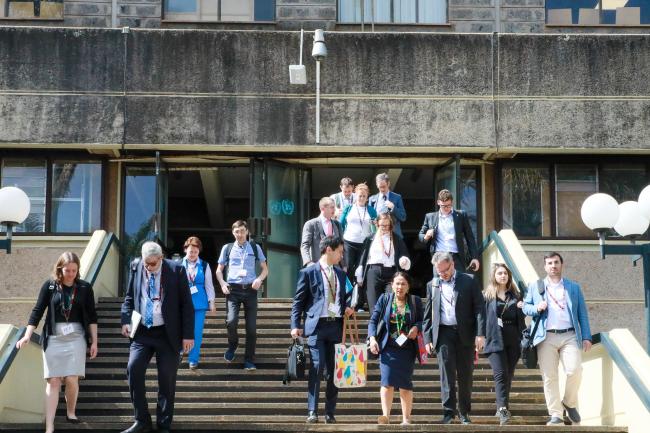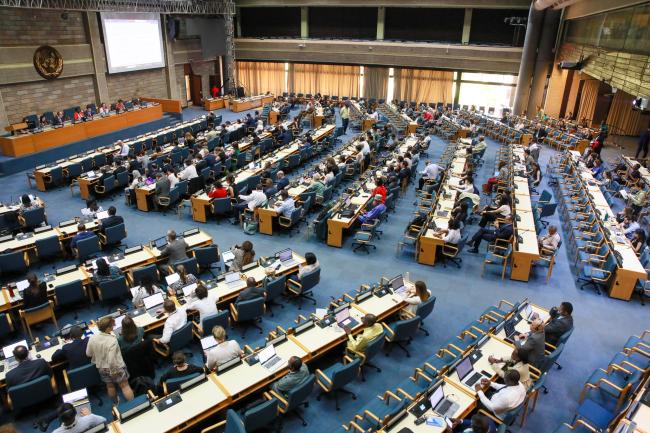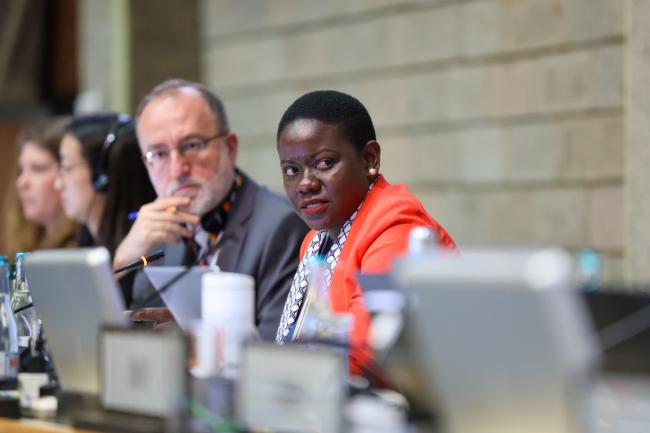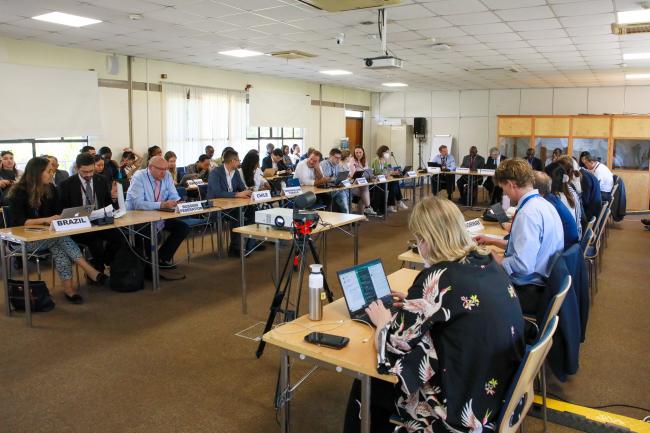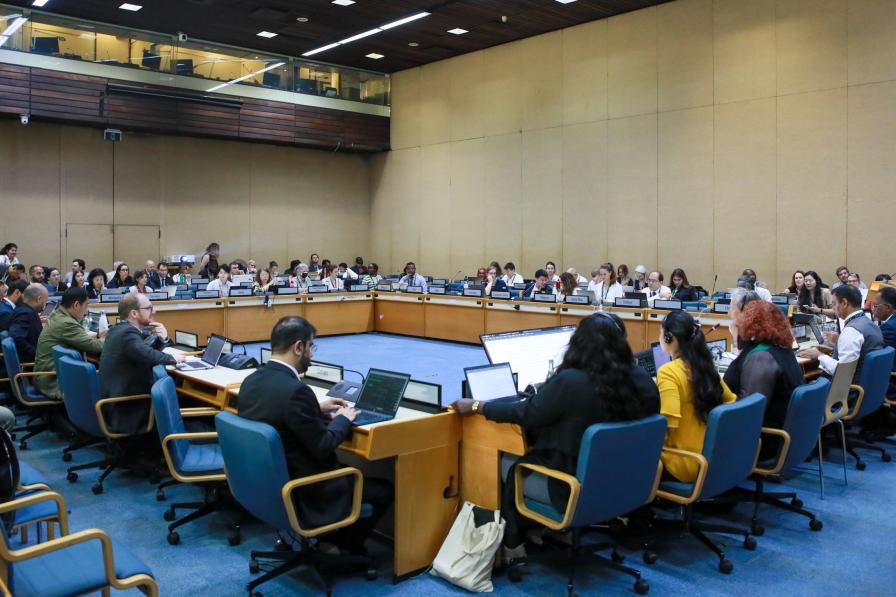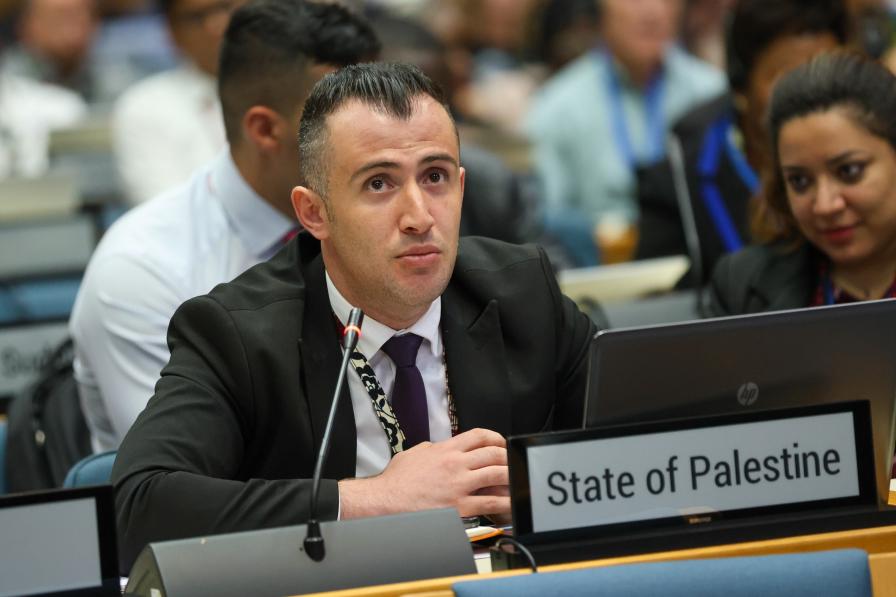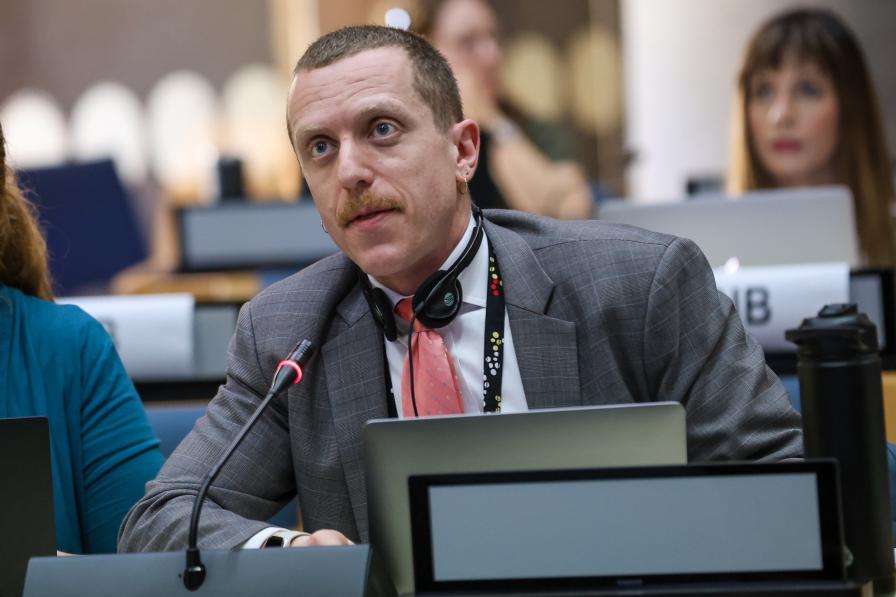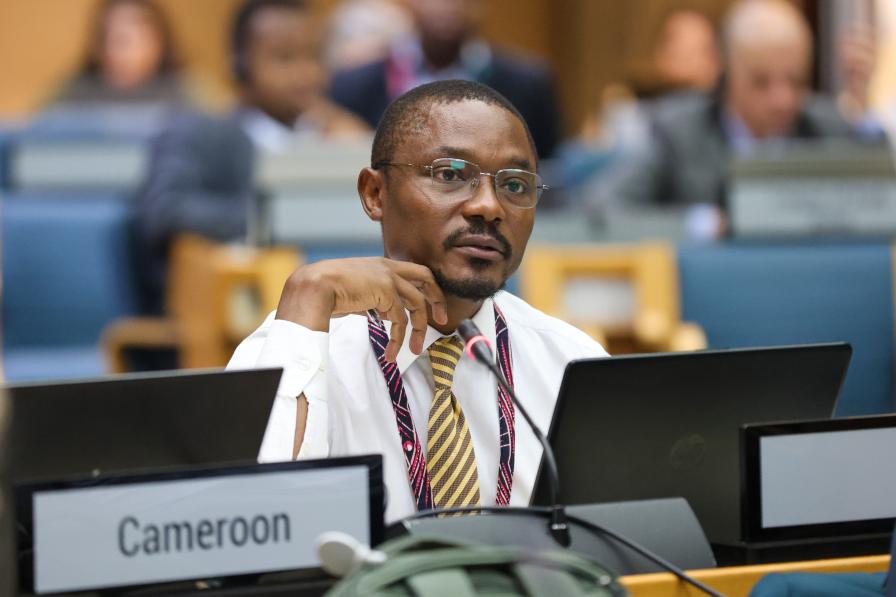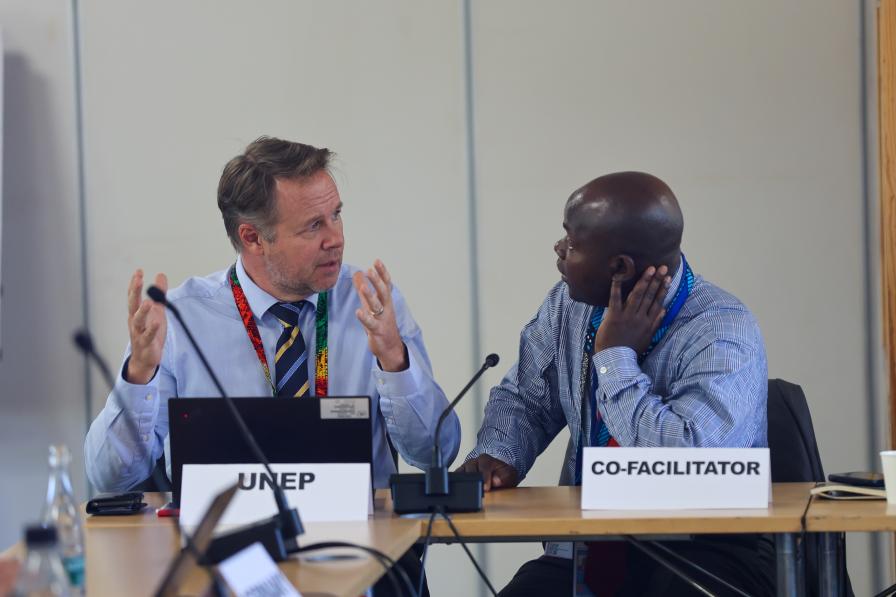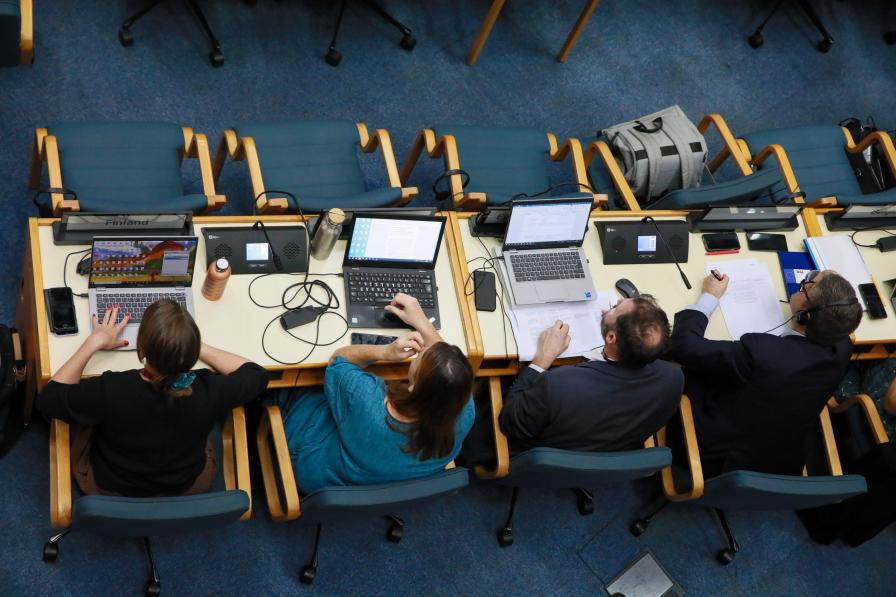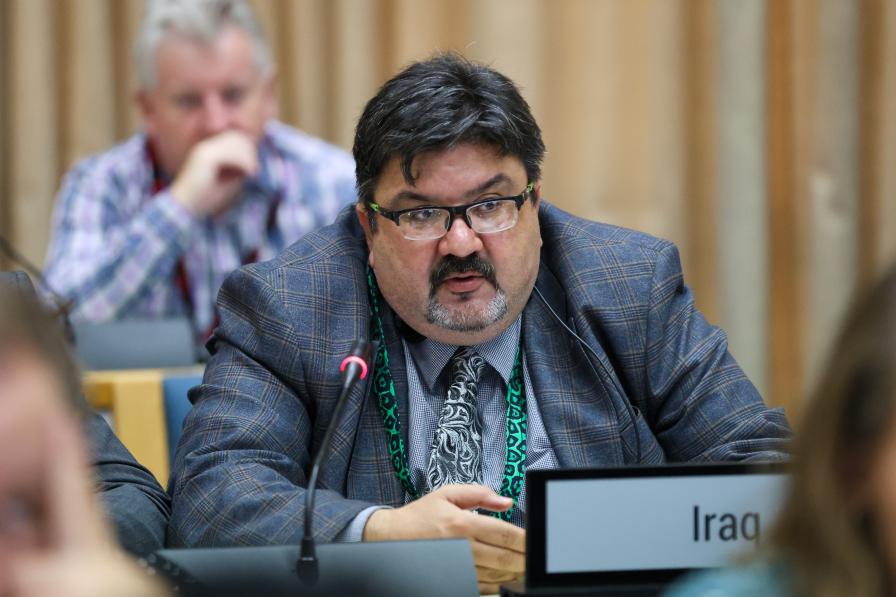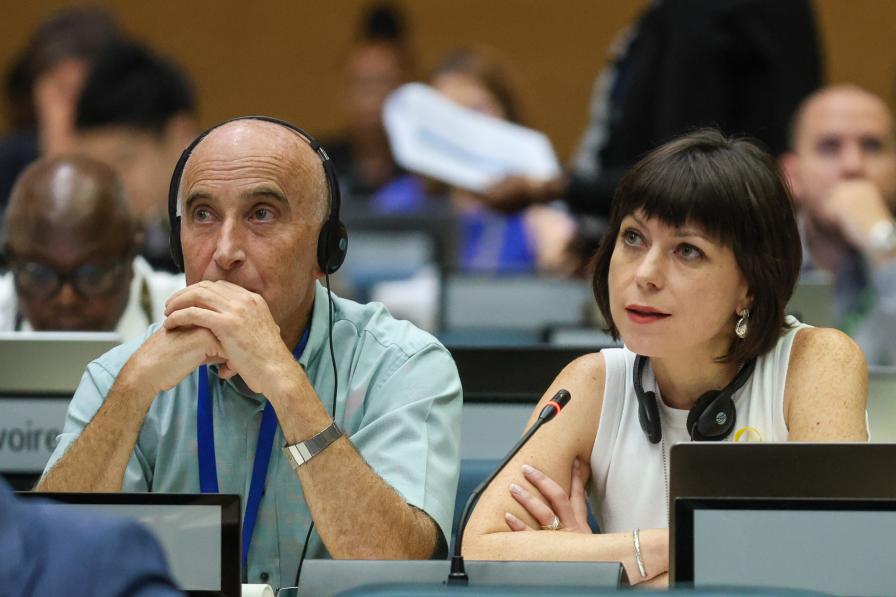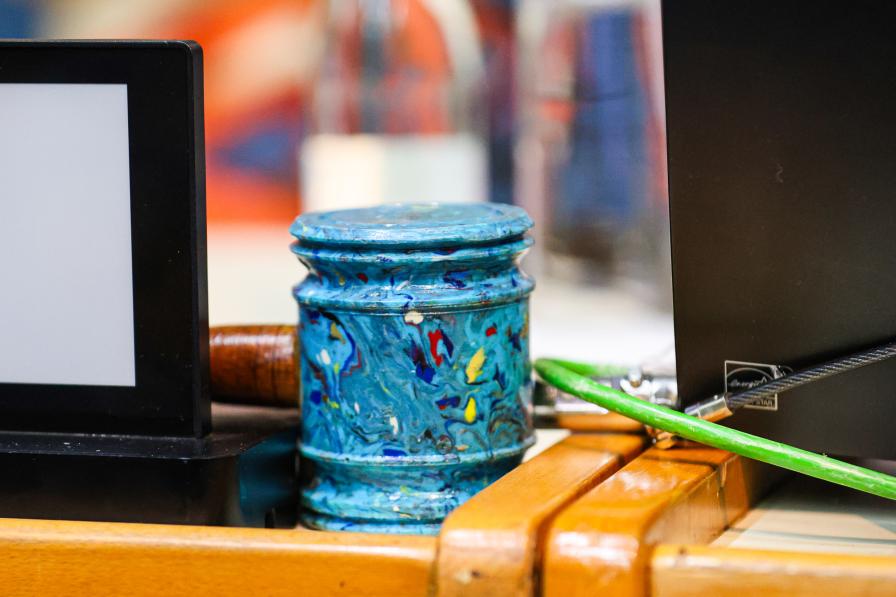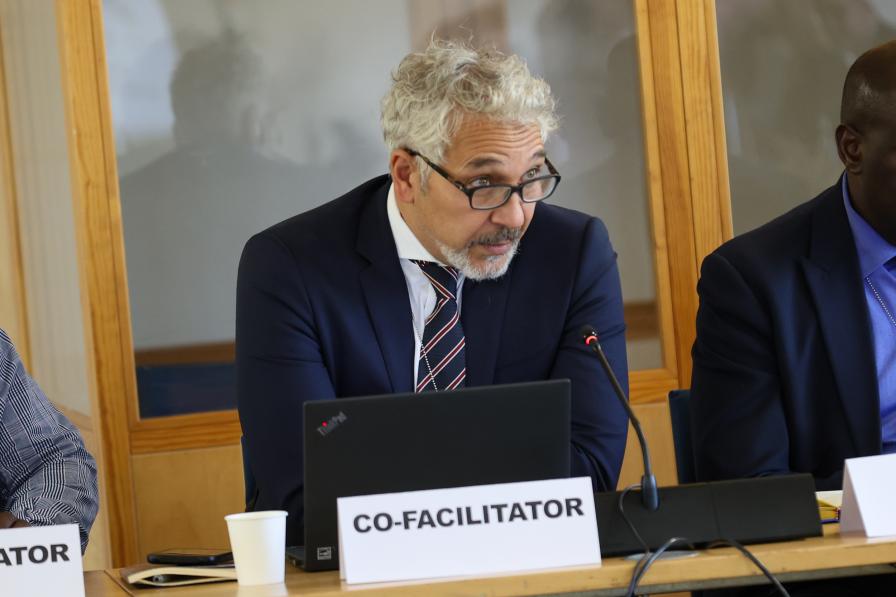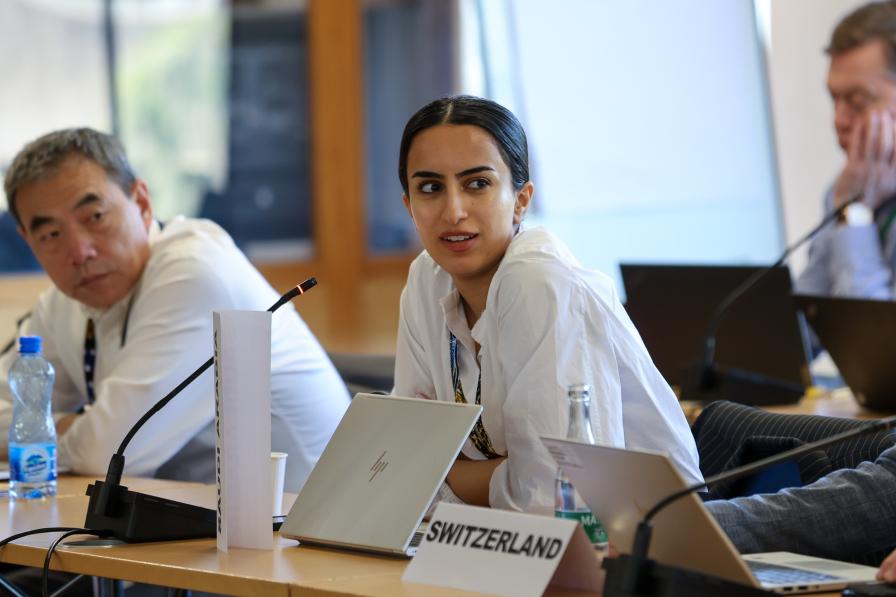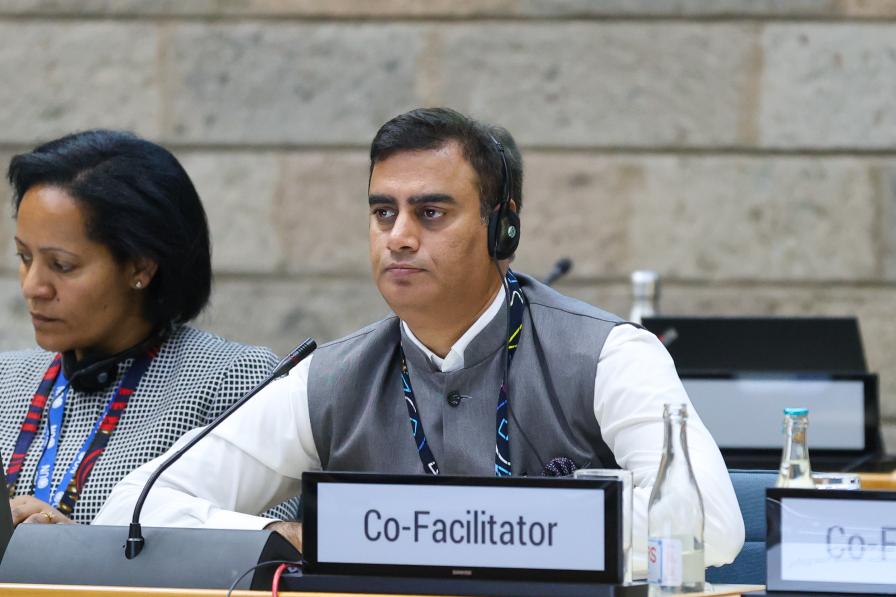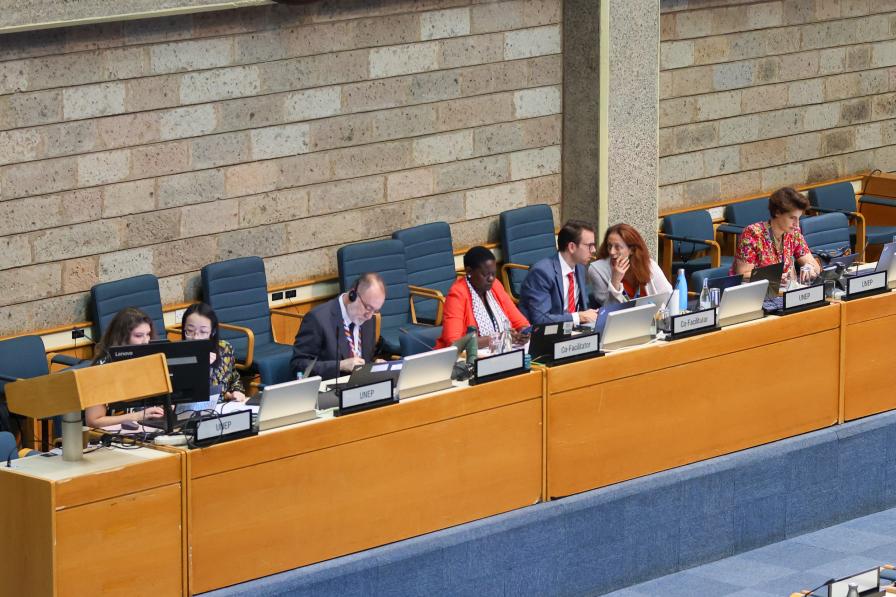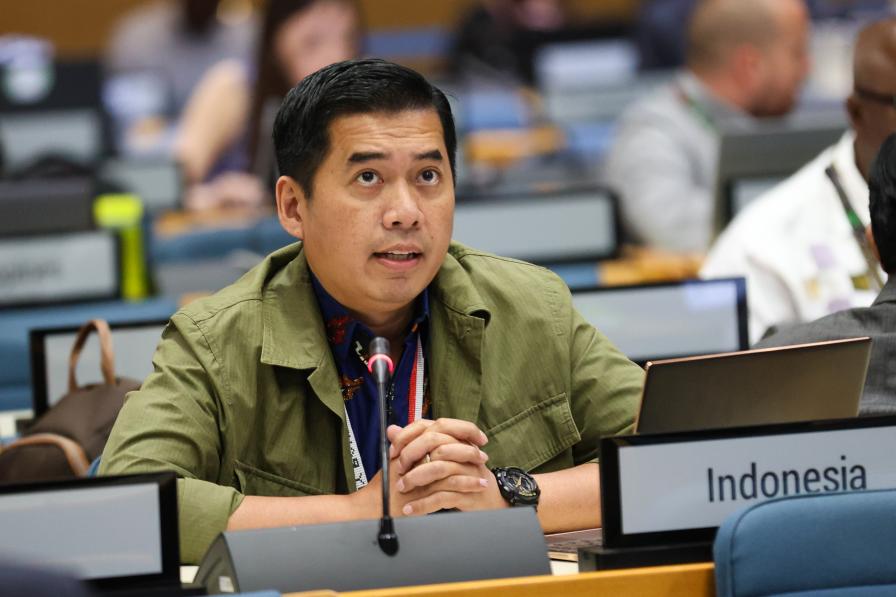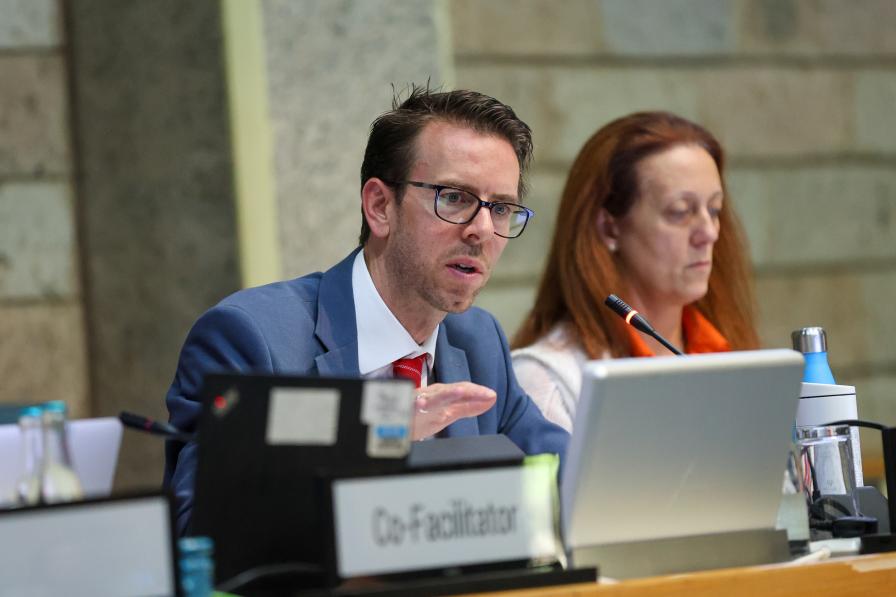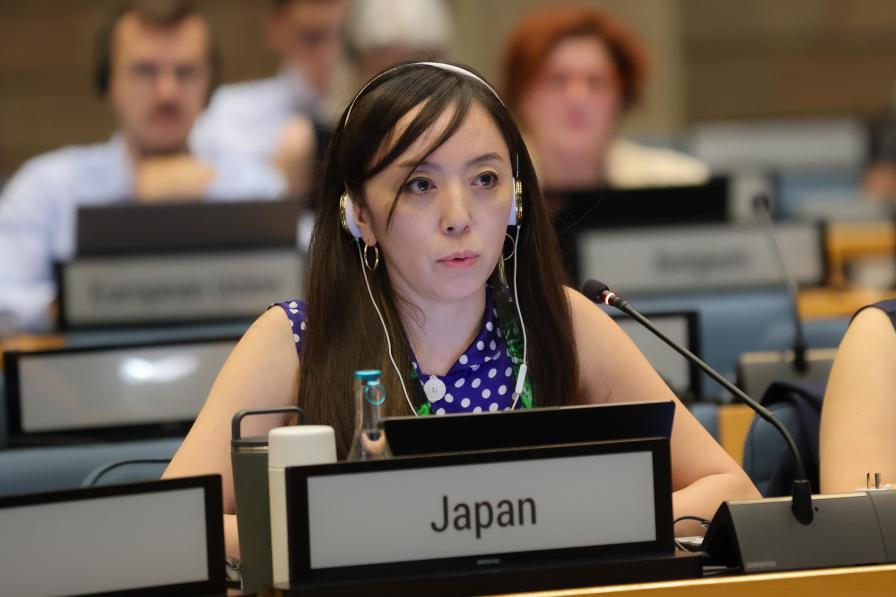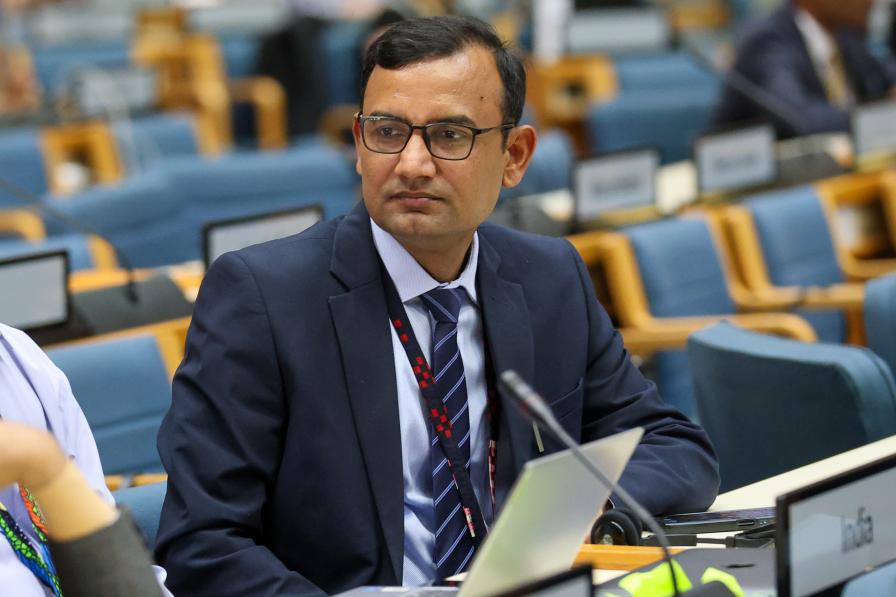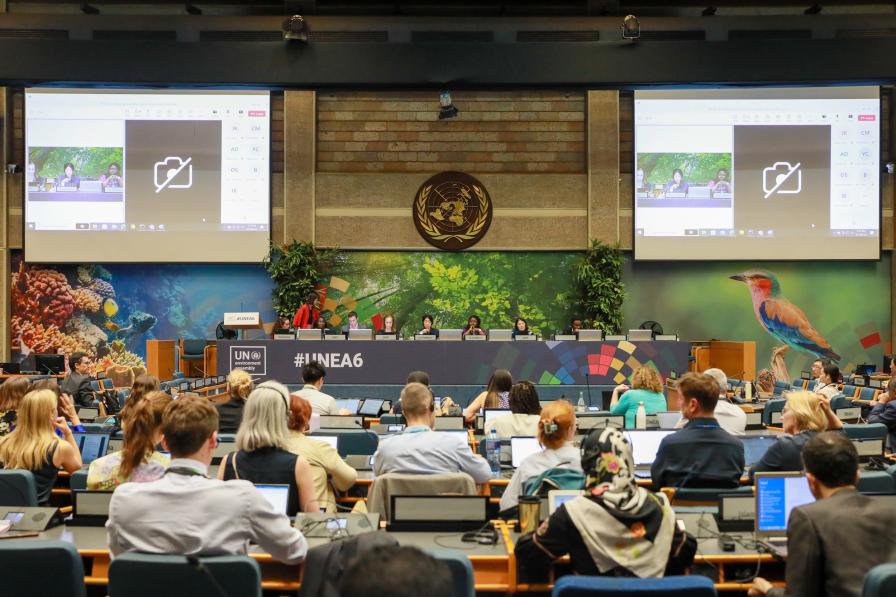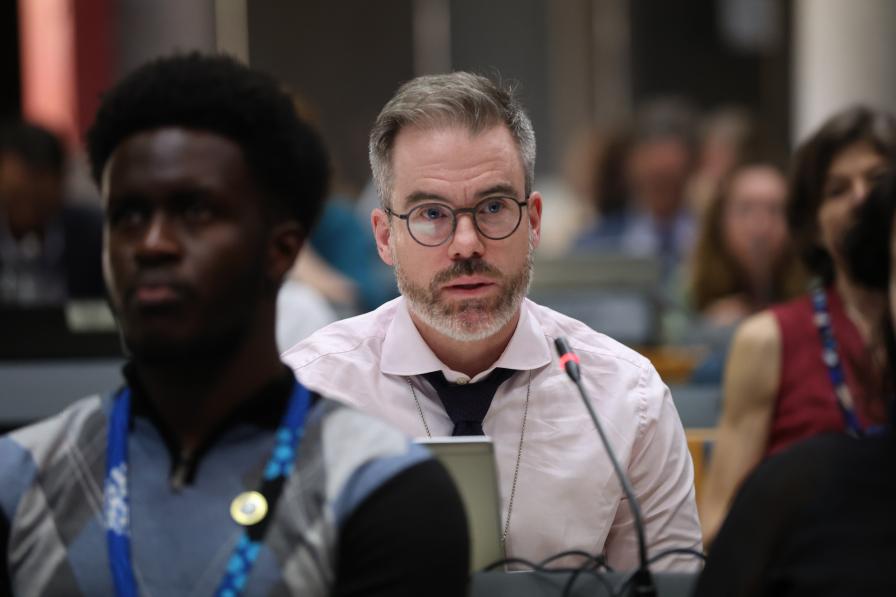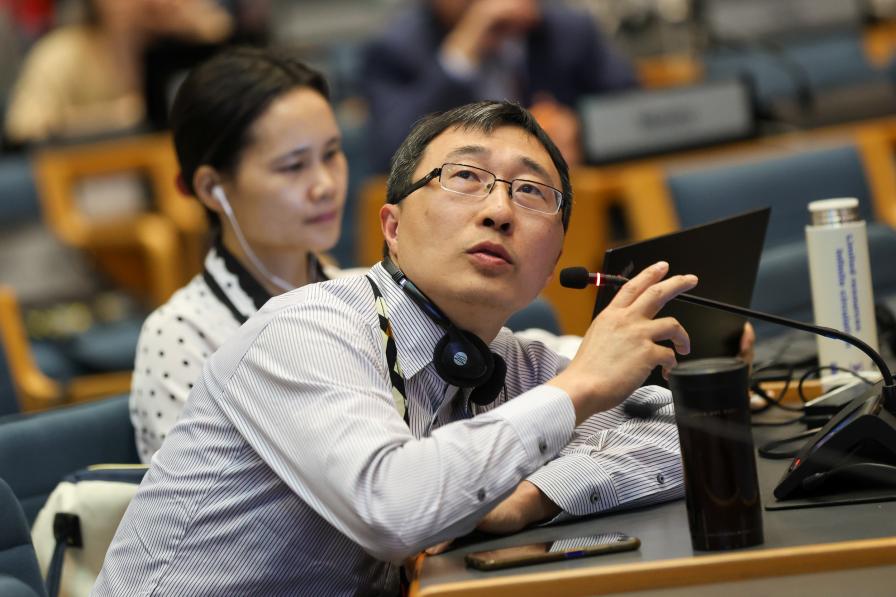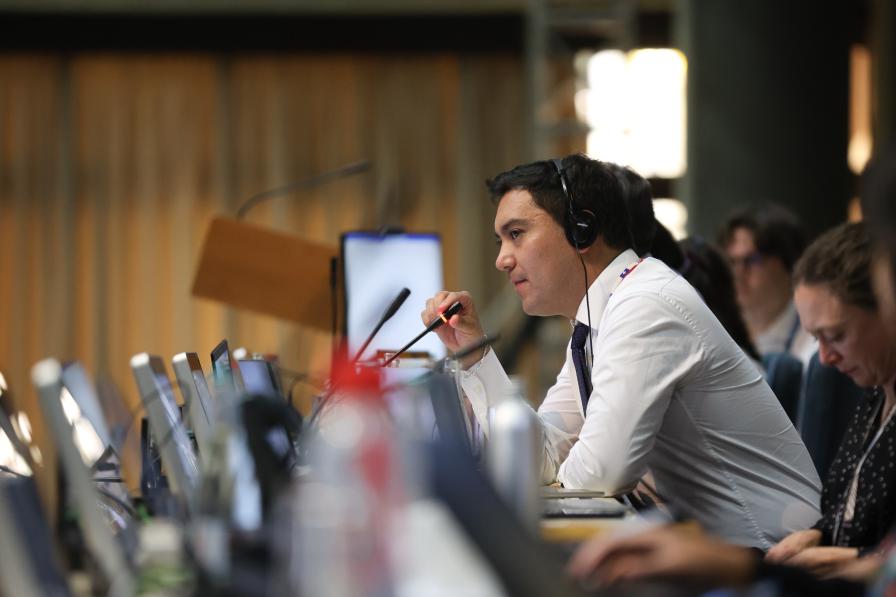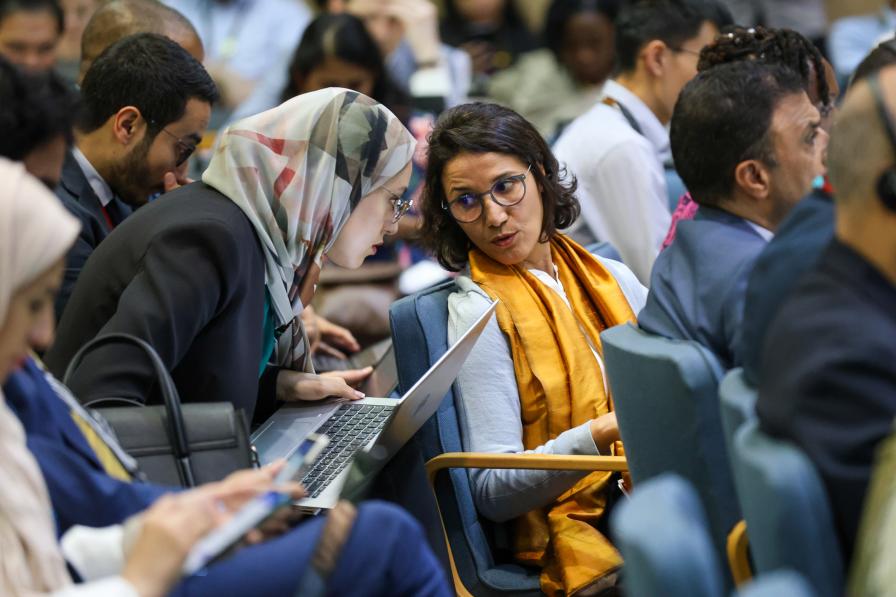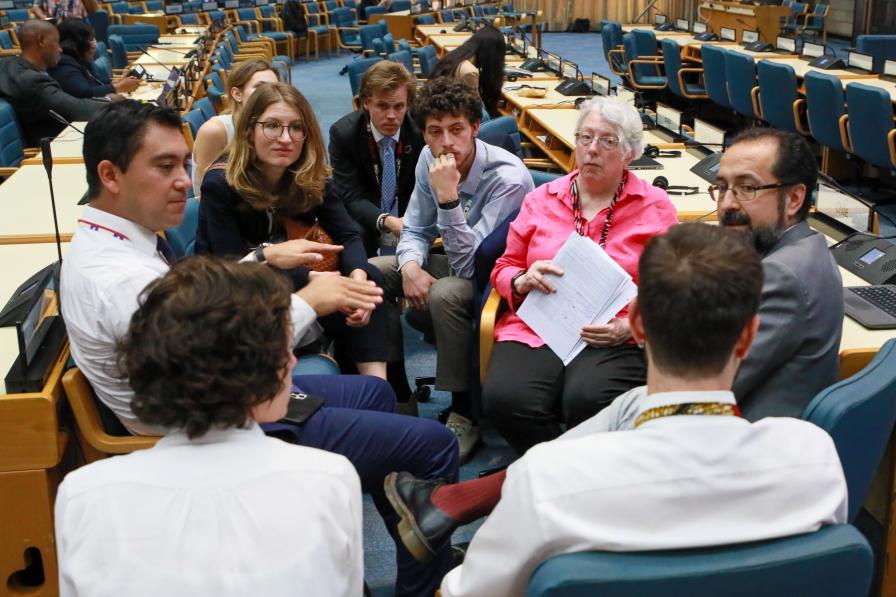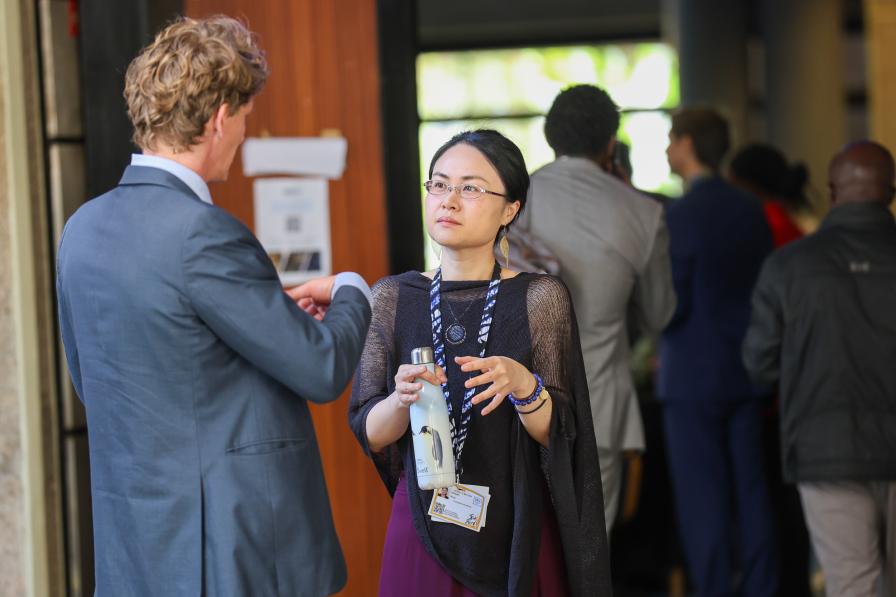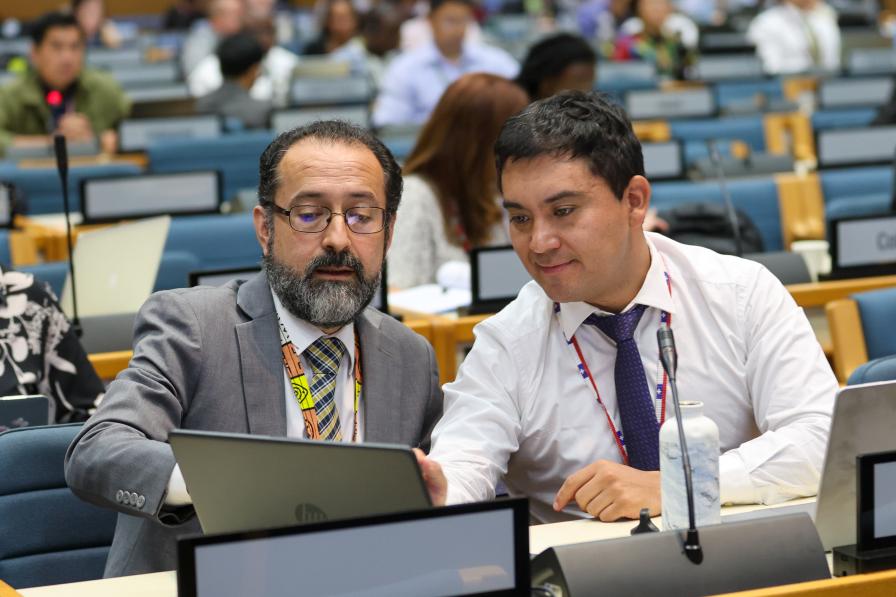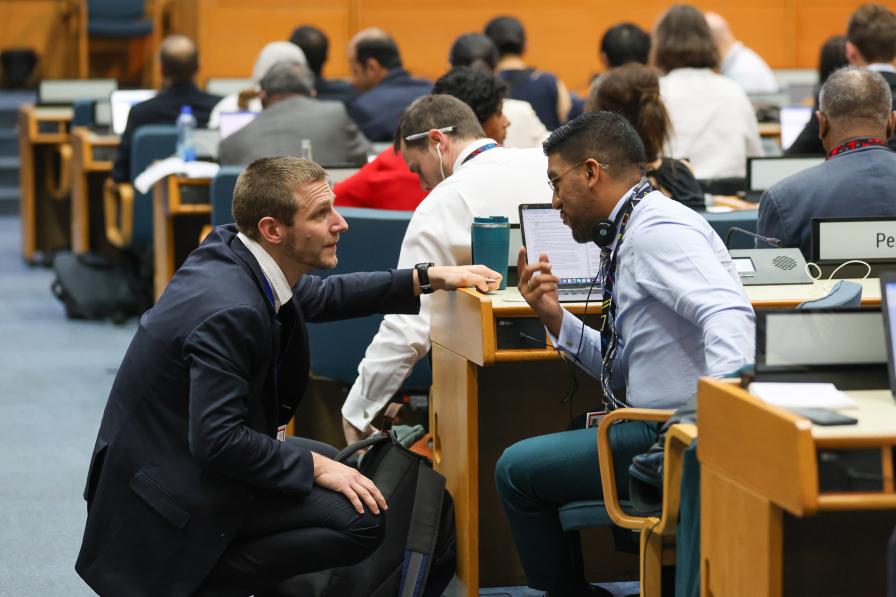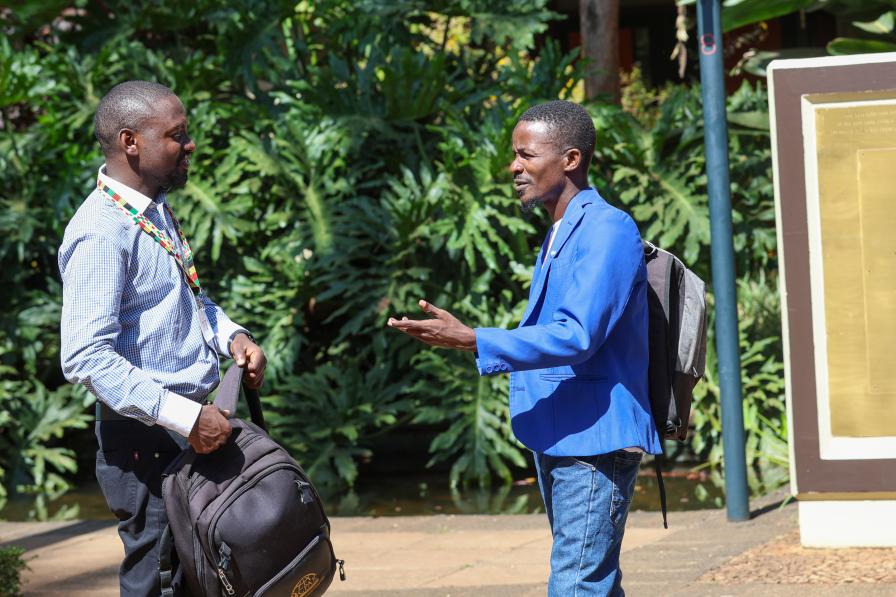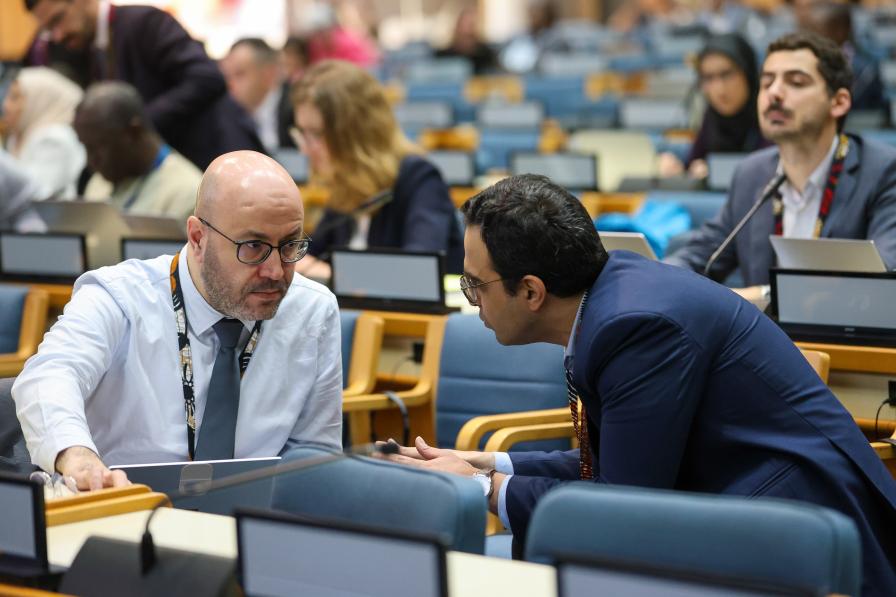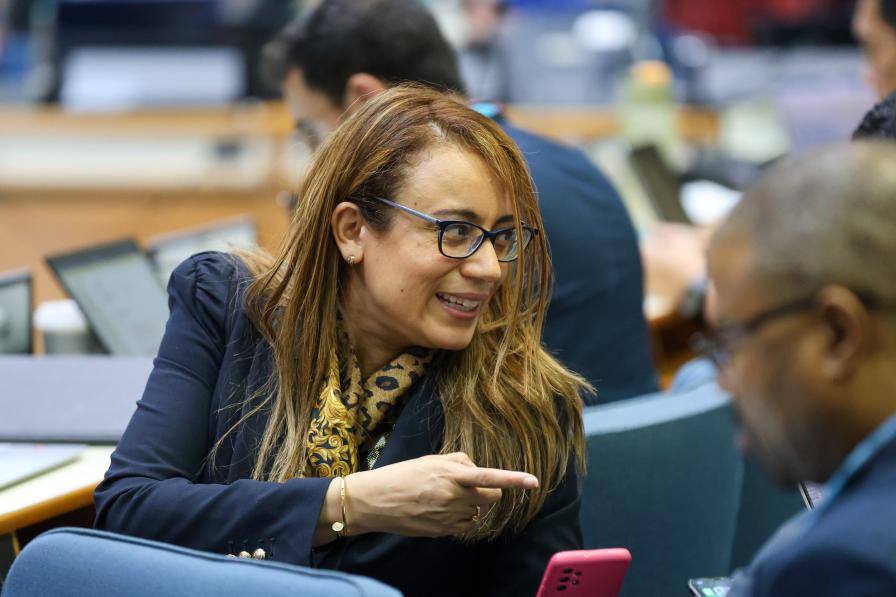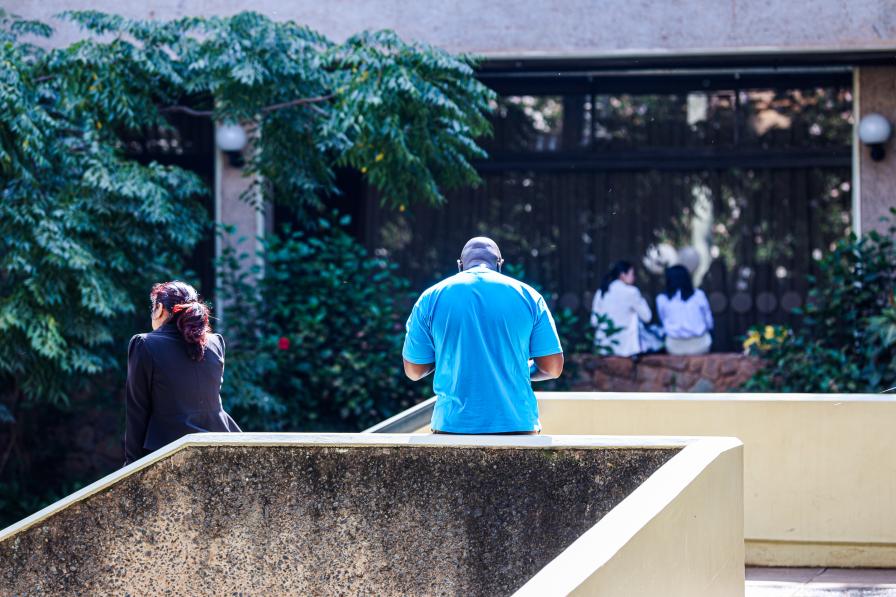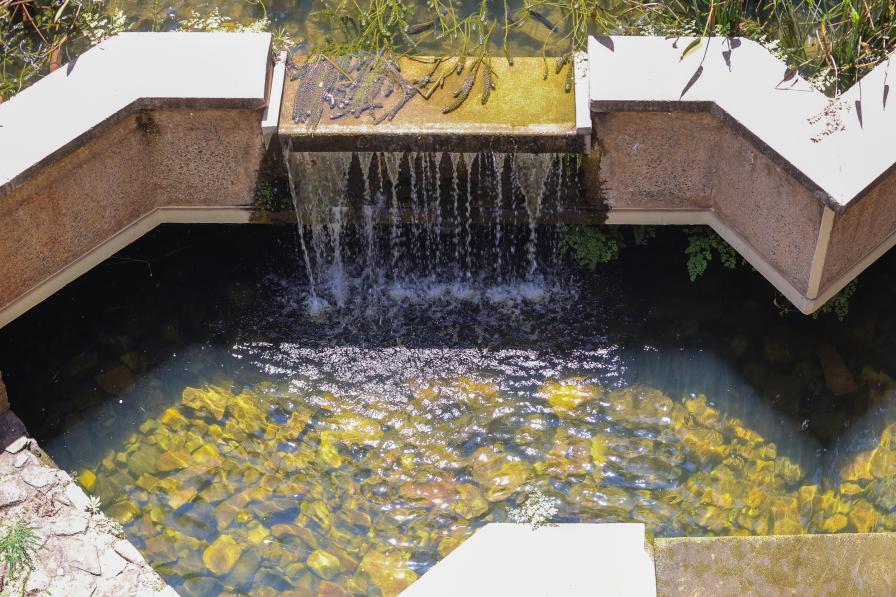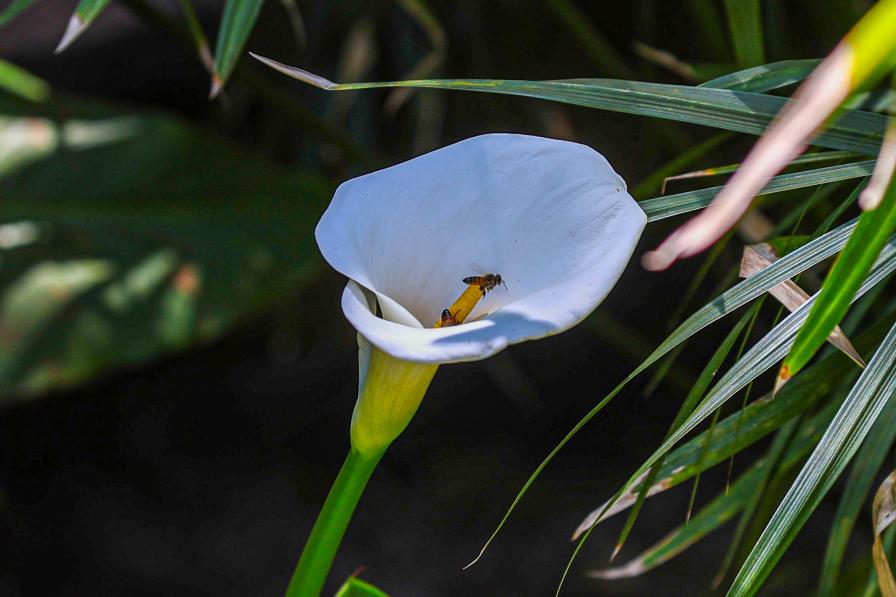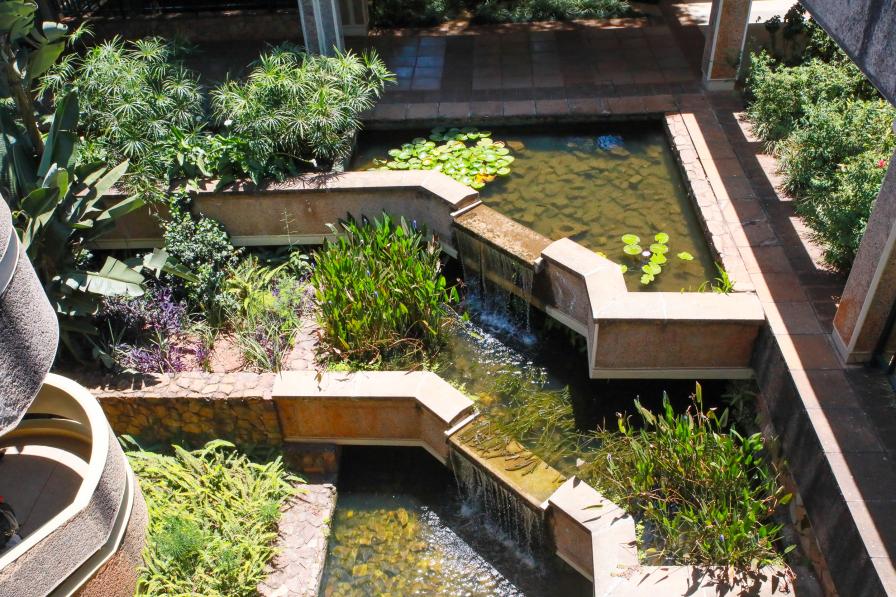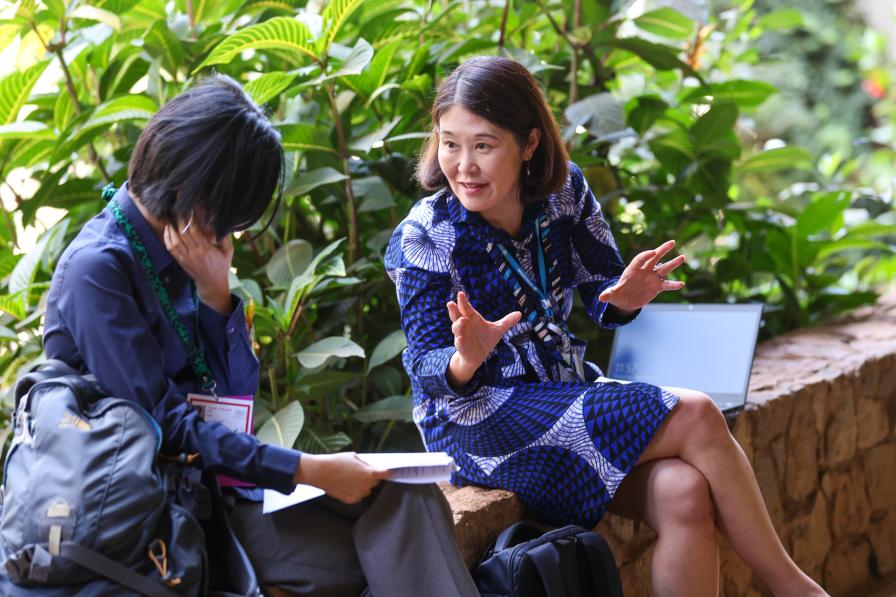Going on day four of late nights followed by early morninga with little or no time for lunch breaks, delegates wasted no time getting back into the thick of negotiations. At some points, three parallel sessions were held to streamline the finalization of draft resolutions. Many delegations were spread thin and some warned against this becoming an accepted practice, where the inability for parties to be in the room may jeopardize consensus in the end.
Any solution proposed, however, did not extinguish the fact that an enormous amount of work remained to be done by Friday.
Want to dig deeper into today's talks? Read the full Earth Negotiations Bulletin daily report.
The complexity of the subject matter being tackled in the resolutions was not lost on anyone, as Member States, non-governmental organizations (NGOs) and Major Groups, observers, and intergovernmental organizations (IGOs) individually and collectively recognized that any misstep in language could result in a different type of triple threat – environmental, political, and economic.
The draft resolution on armed conflicts continued to see opposing positions on defining the scope of armed conflict, specifically how it affects states, peoples and the environment, on legally acceptable language, and the UN Environment Assembly’s (UNEA) mandate to respond to this delicate and politically charged issue.
Similarly, the draft resolution on ocean and seas governance posed the challenge of balancing language and issues already negotiated in overlapping conventions and treaties while also acknowledging jurisdictional limitations in what Member States can do in relation to the universal protection of these water bodies.
Delegates may have felt a déjà vu from recent climate change and biodiversity Conferences of the Parties during a discussion on the management of trust funds and earmarked contributions. There was a suggestion to establish a new trust fund for climate stability with no fixed expiry date. With worry that there may be duplication here in light of the Loss and Damage Fund, and perhaps other funds, along with the growing uneasiness of donor parties that a precedent was being established, text on this addition remains bracketed.
As everyone braces themselves for the biennial United Nations Environment Assembly (UNEA), the cafés on campus have already kicked into high gear dolling out coffees at a non-stop pace for delegates, constituting evidence that this week has been an exhausting but collective sprint to UNEA-6.
To receive free coverage of global environmental events delivered to your inbox, subscribe to the ENB Update newsletter.
All ENB photos are free to use with attribution. For UNEA-6 and OECPR-6 please use: Photo by IISD/ENB - Mike Muzurakis

